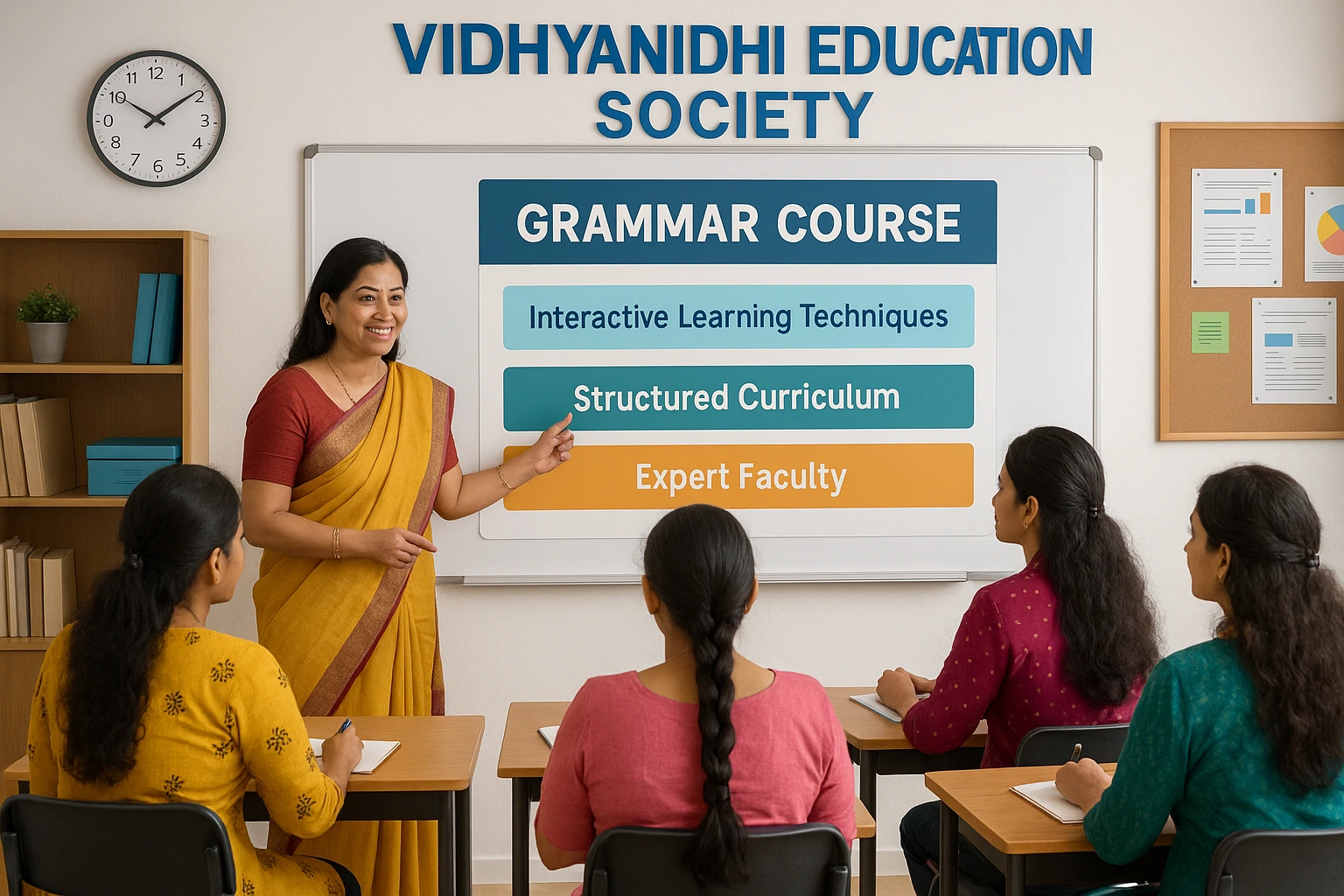A Beginner’s Guide to English Grammar Topics
A Beginner’s Guide to English Grammar Topics
Proficiency in the English language begins with mastering the basics. That’s where English Grammar Topics come into the picture, they form the basis for explicit linguistic skills.
Whether you’re just starting or need an upgrade, understanding key Grammar Topics can make communication much easier. A Beginner’s Guide to English Grammar Topics breaks down essential sections into simple ones to help you progressively build confidence.
Table of Content
Unlock the Secrets of English Grammar in Simple Steps
Mastering English Grammar Topics doesn’t have to feel boring. With the right strategy and routine practice, anyone can develop adept grammar skills.
The following will help Unlock the Secrets of English Grammar in Simple Steps:
Start with the Parts of Speech
Comprehend the role of adverbs, conjunctions, nouns, prepositions, adjectives, interjections, pronouns, and verbs. These are the core blocks of all Grammar Topics. Knowing how each function helps in forming clear and correct sentences.
Focus on Sentence Structure
Practice basic sentence formation- simple, compound, and complex. Understanding subject-verb-object patterns is vital in mastering core Grammar Topics. Begin with small sentences and slowly build more complex ones.
Use Tenses Correctly
Tense shows the time of action. Learn the present, past, and future tenses along with their subcategories like present perfect or past continuous. Tense accuracy is key to clarity in communication and one of the most important English Grammar Topics.
Master Subject-Verb Agreement
To overcome typical errors in English Grammar Topics ensuring the verb agrees in number with the subject is a must. For example, “He eats” (not “He eat”) and “We eat” (not “We eats”).
Improve Punctuation Use
Correct use of commas, periods, question marks, apostrophes, and other marks gives meaning to a sentence and is an important English Grammar Topic.
Practice with Examples and Exercises
Apply what you learn through worksheets, grammar books, or digital tools. Repetition and correction help strengthen your grasp of Grammar Topics.
Read and Listen Actively
Exposure to correct grammar in books, podcasts, and articles reinforces your understanding. Observing Grammar Topics in real use boosts retention and application.
To download the brochure of Grammar Teacher Training Course, Click Here!
For details of Grammar Teacher Training Course, Call or Whatsapp on +918104606573 / +919869546913.

Source: freepik
Roadmap to Grammar Clarity from Confusing to Confidence
Mastering English Grammar Topics can feel overwhelming, particularly when rules seem endless and exceptions even more so. However, with a clear Roadmap to Grammar Clarity from Confusing to Confidence becomes possible.
Here’s a structured path to understanding English Grammar Topics effectively:
Start with the Basics
Begin with the foundation—parts of speech. These are the pillars of all Grammar Topics and are important for sentence structure.
Learn Sentence Structure
Once you grasp parts of speech, focus on sentence formation. Comprehend subjects, predicates, and how simple, compound and complex sentences are formed. This step will help you connect different Grammar Topics in context.
Understand Tenses Thoroughly
Tenses are central to Grammar Topics. Understand the main tenses—past, present, and future in simple, continuous, perfect, and perfect continuous forms. Practice their usage to express time clearly.
Master Subject-Verb Agreement
This rule affects clarity and correctness. Pay attention to how singular and plural subjects affect verb forms. Misinterpreting this part of Grammar Topics can lead to common blunders.
Correct Use of Punctuation
Punctuation marks bring essence to a sentence. Learning their correct placement strengthens your command over Grammar Topics.
Practice with Real Examples
Apply rules through reading and writing exercises. Spot grammar patterns in books or articles. Consistent exposure sharpens understanding of all English Grammar Topics.
Get Feedback and Self-Revise
Review your writing and accept corrections. Over time, feedback helps reduce errors and builds confidence in using Grammar Topics properly.
Following this roadmap, learners can steadily move toward clarity and develop a strong command over Grammar Topics in daily communication.
To download the brochure of Grammar Teacher Training Course, Click Here!
For details of Grammar Teacher Training Course, Call or Whatsapp on +918104606573 / +919869546913.

Essential Grammar Topics to Speak and Write Right
Understanding key English Grammar Topics is essential for improving both expression and writing skills. A strong grasp of grammar helps in forming clear, correct, and meaningful sentences. Whether you’re a student, professional, or language learner, learning essential Grammar Topics will make communication more convincing and confident.
Below are the Essential Grammar Topics to Speak and Write Right, explained in simple terms:
Parts of Speech
These are the basic elements of sentences. Learning each type helps in structuring sentences correctly.
Nouns
Names of individuals, places, items, or thoughts (e.g., teacher, Mumbai, book).
Pronouns
Substitutions for nouns (e.g., he, she, it, they).
Verbs
Motion or state words (e.g., run, is, have).
Adjectives
Characterizes nouns (e.g., tall, red, quick).
Adverbs
Define verbs, adjectives, or other adverbs (e.g., quickly, very, silently).
Prepositions
Show direction or location (e.g., in, on, under).
Conjunctions
Unite words or sentences (e.g., and, but, or).
Interjections
Express feelings (e.g., wow, oh, ouch).
Tenses
Tenses show when the action occurs and are essential for expressing time clearly. There are three primary types:
- Present Tense: Represents current actions (e.g., She reads every day).
- Past Tense: Depicts past movements (e.g., They visited last week).
- Future Tense: Refers to activities that will occur (e.g., We will dance tomorrow).
These are further classified into- simple, perfect, continuous, and perfect continuous tenses.
Subject-Verb Agreement
To overcome typical errors in Grammar Topics ensuring the verb agrees in number with the subject is a must.
- Singular subject- singular verb (e.g., She goes to school).
- Plural subject- plural verb (e.g., They go to school).
Errors in this topic can make sentences vague or grammatically incorrect.
Sentence Structure
Mastering sentence formation is essential for fluency.
- Simple Sentences: Enclose one idea (e.g., The dog sleeps).
- Compound Sentences: Connects two thoughts with a conjunction (e.g., I was exhausted, but I worked).
- Complex Sentences: Have one central idea and one or more dependent ideas (e.g., Because it rained, we stayed inside).
Articles
Articles are used before nouns to show whether something is specific or general.
- Definite Article: The (e.g., The moon is shining).
- Indefinite Articles: A and An (e.g., A book, An egg).
Mastering when and how to use articles is the secret to learning Grammar Topics.
Punctuation
Punctuation marks clarify purpose and help sentences flow.
- Periods (.) end sentences.
- Commas (,) separate ideas or items.
- Question Marks (?) indicate questions.
- Exclamation Marks (!) show strong feelings.
Understanding punctuation makes written communication more effective.
Modals and Auxiliaries
These helping verbs represent need, ability, consent, or potential.
- Can, Would, Could, Will, Shall, Might, Must, Should, May
- Example: You should complete your assignment.
These forms are widely used in both speaking and writing, making them key English Grammar Topics.
Voice – Active and Passive
- Active Voice: The work is done by the subject. (e.g., She composed a song).
- Passive Voice: The work is done to the subject (e.g., A song was composed by her).
Both forms are correct, picking the right one enhances clarity and tone.
Direct and Indirect Speech
This topic is useful in reporting what others say.
- Direct Speech: “He says, ‘I am delighted.’”
- Indirect Speech: He says that he is delighted.
Changing tenses, pronouns, and time indications correctly are crucial in this English Grammar Topic.
Conditionals
Conditionals describe possible or imaginary situations.
- Zero Conditional: Facts (e.g., If you heat water, it boils).
- First Conditional: Real future possibility (e.g., If it rains, we will stay in).
- Second Conditional: Unreal present (e.g., If I were rich, I would travel).
- Third Conditional: Fictitious past (e.g., If I had danced, I would have won).
Mastering these essential Grammar Topics can greatly boost your proficiency and confidence in both writing and conversation. Routine practice and a robust familiarity with these core areas ensure that your communication is explicit, structured, and convincing. Whether you wish to master the basics of English Grammar Topics or polish your skills, enrolling in Grammar Courses is always a wise choice.
To download the brochure of Grammar Teacher Training Course, Click Here!
For details of Grammar Teacher Training Course, Call or Whatsapp on +918104606573 / +919869546913.

To Keep you Hooked: Grammar Made Fun
Learning grammar doesn’t have to be monotonous or challenging. With the right approach, even the most dull or challenging English Grammar Topics can become fun and effortless to grasp. That’s precisely what the Grammar Courses by Vidhyanidhi Education Society (Govt. Regd.) offer — To Keep you Hooked: Grammar Made Fun in a supportive learning environment.
Whether you’re a student, teacher, or professional looking to advance your language skills, these Grammar Courses are developed to make learning practical and delightful. The modules of the Grammar Courses concentrate on Grammar Topics in a way that promotes active participation and long-term comprehension.
Attributes of the Grammar Courses by Vidhyanidhi Education Society (Govt. Regd.):
Interactive Learning Techniques
Lessons include games, exercises, and real-life illustrations that bring Grammar Topics to life.
Structured Curriculum
The Grammar Courses cover all key English Grammar Topics— tenses, articles, prepositions, parts of speech, sentence structure, voice, and more — with a special emphasis on practical usage.
Expert Faculty
Trainers with extensive teaching experience break down intricate rules into uncomplicated, relatable concepts.
Flexible Batches
Both weekday and weekend batches are available, making them suitable for school students, college-goers, and working professionals.
Child-Friendly Approach
For younger learners, grammar is introduced through storytelling, fun worksheets, and dynamic revision exercises.
Digital & In-Person Modes
Grammar Courses are available both online and in-class way, allowing learners to select what fits them best.
These Grammar Courses are built around the idea that grammar is not just a subject to memorize but a skill to be understood and applied confidently. By turning the focus to interactive and purposeful learning, Vidhyanidhi Education Society (Govt. Regd.) ensures that even the trickiest English Grammar Topics become manageable and enjoyable.
Master grammar skills—join Vidhyanidhi’s Grammar Teacher Training Course now!
To download the brochure of Grammar Teacher Training Course, Click Here!
For details of Grammar Teacher Training Course, Call or Whatsapp on +918104606573 / +919869546913.
FAQs
How does this Course Make Grammar Fun?
It uses games, stories, and engaging activities that turn boring grammar drills into fun learning.
Is there a Certificate after Completing the Grammar Course?
Yes, you'll receive a certificate upon course completion, adding value to your language skills.





